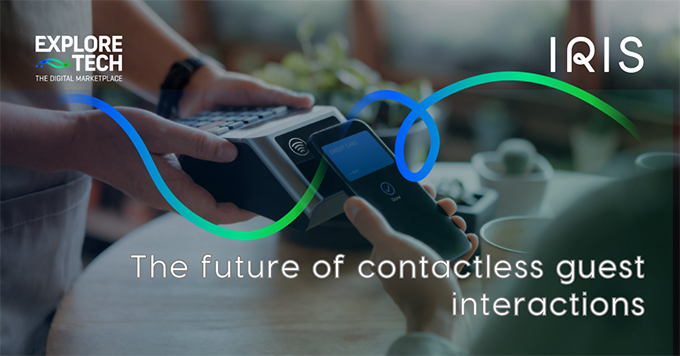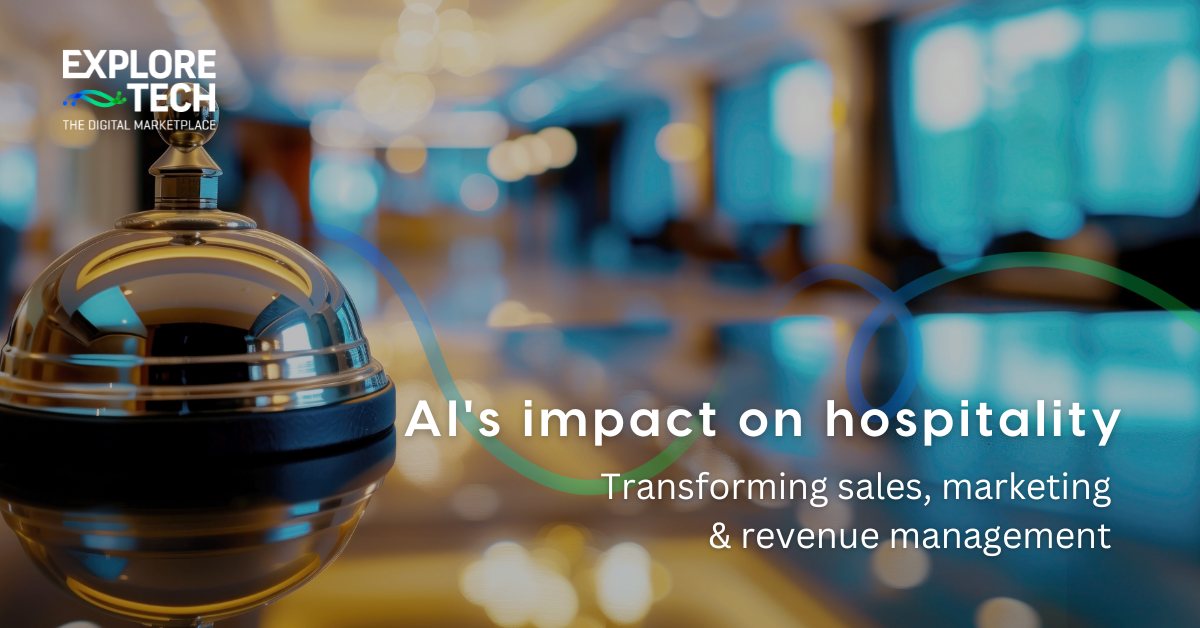
The hospitality industry is undergoing a transformative shift driven by the rapid advancement of contactless technologies. These innovations are redefining guest interactions, making them more efficient, secure, and personalized. As hotels strive to enhance guest experiences and streamline operations, the adoption of contactless solutions has become paramount. This article explores the evolution, key areas, benefits, challenges, and future of contactless hospitality, highlighting how these technologies are shaping the future of guest interactions. Expert insights from IRIS, a leader in digital solutions for hotels, are also featured and extensively explored to provide a comprehensive perspective.
The Evolution of Contactless Technology in Hospitality
Traditionally, guest interactions in hotels involved face-to-face communication and physical exchanges. From check-in to check-out, every step of the guest journey required some form of manual interaction. However, with the advent of digital technologies, the hospitality industry began to evolve. The introduction of self-service kiosks, mobile apps, and digital room keys marked the beginning of the shift towards contactless hospitality.
The COVID-19 pandemic significantly accelerated this transition. The need for social distancing and minimizing physical contact propelled the adoption of contactless technologies. Hotels worldwide began to implement solutions that allowed guests to interact with services and facilities without direct human contact, ensuring safety and convenience.
Key Areas of Contactless Hospitality
Contactless Check-In and Check-Out
One of the most significant advancements in contactless hospitality is the ability for guests to check in and out without physical interaction. Self-service kiosks and mobile apps enable guests to complete these processes seamlessly. Guests can use their smartphones to check in, receive digital room keys, and even check out, all without queuing at the front desk.
Digital Room Keys
Gone are the days of traditional key cards. Today, guests can use their smartphones as digital room keys. This technology not only enhances security but also provides a more convenient experience. With a simple tap or scan, guests can access their rooms, eliminating the need to carry a physical key.
F&B Mobile Ordering and Payment Systems
Mobile ordering systems have transformed in-room dining and other hotel services. Guests can now use their devices to order food, request services, and make payments, eliminating the need for physical interaction. IRIS’ mobile ordering offers guests the flexibility to order and pay from their own devices, enhancing convenience and accuracy. This not only improves the guest experience but also boosts hotel revenue by 20-40% on average. Find out more about IRIS’ mobile ordering.
Virtual Concierge Services
AI-powered virtual concierge services, such as chatbots and voice assistants, provide guests with instant assistance. These virtual concierges can answer questions, provide recommendations, and handle requests 24/7, ensuring guests receive timely and personalized service.
Digital Directories
Digital directories have replaced printed guides with interactive, up-to-date information accessible via mobile apps or in-room tablets. IRIS’ digital guest directory offers a sustainable and efficient alternative, providing guests with essential details like maps, local recommendations, and hotel amenities directly on their devices. This ensures guests have current information and can easily navigate their stay. Find out more about IRIS’ digital guest directory.
Enhancing Guest Experiences through Contactless Solutions
Contactless solutions play a crucial role in enhancing guest experiences by providing personalized, convenient, and seamless services. Technologies like those developed by IRIS exemplify how innovative solutions can transform the hospitality landscape.
Personalization and Convenience: According to Kate Fuller, Marketing Manager at IRIS, "Our mobile ordering system allows guests to review, order, and pay for items directly from their own devices at their convenience. This flexibility means guests are no longer restricted by the need to find a physical menu or flag down a waiter. Instead, they can place orders from anywhere within the hotel premises, whether they are by the pool, in their room, or in the lounge."
Increased Accuracy and Efficiency: Fuller adds, "Our mobile ordering system significantly improves order accuracy and reduces friction in the ordering process. This leads to a smoother guest experience and quicker delivery of orders by staff. On average, hotels implementing this system see a revenue boost of between 20-40% due to the increased efficiency and guest satisfaction."
Sustainability and Accessibility: IRIS’s digital guest directory offers a sustainable alternative to traditional in-room printed directories. Fuller notes, "Our digital solution provides guests with essential information such as maps, local area recommendations, and hotel services directly on their devices. This not only reduces paper waste but also ensures that guests have up-to-date information at their fingertips, enhancing their overall stay."
Real-World Examples
- At W Dubai Mina Seyahi, guests appreciate the efficiency and convenience of ordering food and beverages with just a few clicks, eliminating the need to wait in line or interact directly with staff. Read More
At Al Manara, the online ordering system has led to increased order accuracy, reduced guest complaints, and the ability for guests to send personal messages to the chef, ensuring nothing is overlooked. Read More
Le Royal Méridien Doha has seen delivery times reduced by five minutes per order, thanks to guests self-ordering. This not only enhances the guest experience but also allows staff to focus on other tasks or guest needs, ensuring a more efficient service overall. Read More
Feedback and Continuous Improvement
Contactless technology, such as the solutions provided by IRIS, facilitates the collection of real-time feedback from guests. Fuller emphasizes, "This data can be used to continuously improve services and address any issues promptly, ensuring a high level of guest satisfaction."
Ensuring Seamless Integration and User-Friendly Experiences
The successful implementation of contactless technologies requires seamless integration with existing systems and user-friendly interfaces for both guests and hotel staff. Ensuring these elements are in place is crucial for maximizing the benefits of such innovations.
Technology Integration: Integrating new technologies with existing hotel systems can be challenging. However, IRIS has addressed this by providing direct POS integration for their ordering systems. Fuller explains, "Our direct POS integration means that guest orders go directly to the kitchen or bar, enhancing operational efficiencies. Staff no longer need to take orders over the phone or in person and then manually input them, as orders are automatically delivered to the relevant departments."
Operational Efficiency: The direct integration of IRIS’s platform means swifter ordering capabilities, allowing staff to serve more covers and increase turnaround times with fewer resources and less stress. Fuller highlights, "With the IRIS direct POS integration, guest orders go directly to the kitchen, enhancing operational efficiencies, freeing up staff time, and reducing customer wait times."
User-Friendly Interfaces: The design of intuitive and easy-to-use interfaces is crucial for the adoption of contactless solutions. IRIS’s platform provides a more cost-effective, sustainable solution with no costly reprints. Fuller notes, "All content can be easily updated at the touch of a button, ensuring that information remains relevant and fresh. Guests can access this information wherever they are in the property, in a way that suits them."
Training and Support: Proper training and support for hotel staff are essential to maximize the benefits of contactless technologies. Staff should be well-versed in using these tools to assist guests effectively, ensuring a smooth and seamless guest experience.
Collaborative Solutions: Collaboration between technology providers and hotel management is vital for successful implementation. Hotels should work closely with vendors to tailor solutions that meet their specific needs and ensure smooth deployment.
Case Study Examples
At Le Royal Méridien Doha, the swift ordering capabilities enabled by IRIS’s direct POS integration have allowed staff to serve more guests efficiently, reducing delivery times and improving overall service quality.
“The menus are easily accessed via QR codes advertised on monitors in the foyer and on TVs in the guest rooms, says Fuller. Read More
Benefits of Contactless Hospitality
The adoption of contactless technologies offers numerous benefits for both guests and hotels.
Improved Guest Experience: Contactless solutions enhance the overall guest experience by providing personalized, convenient, and efficient services.
Operational Efficiency: These technologies streamline hotel operations, reducing wait times and manual processes, leading to increased operational efficiency.
Health and Safety: Minimizing physical contact is crucial for health and safety, especially in the post-pandemic world. Contactless technologies ensure a safer environment for both guests and staff.
Challenges and Considerations
Despite the benefits, the implementation of contactless technologies presents several challenges and considerations.
Technology Integration: Ensuring seamless integration with existing systems can be complex and requires careful planning and execution.
Data Privacy and Security: Protecting guest data is paramount. Hotels must implement robust security measures to safeguard personal information and prevent breaches.
Guest Adaptation: While many guests embrace contactless solutions, some may find it challenging to adapt. Ensuring user-friendly interfaces and providing assistance can help overcome this barrier.
The Future of Contactless Hospitality
The future of contactless hospitality is being shaped by the increasing demand for digital experiences and the need for hotels to offer seamless, engaging services. Mobile technology is now essential, providing guests with convenience and choice while helping operators optimize operations and unlock new revenue opportunities.
Mobile Technology Integration: Mobile solutions have become vital for meeting guest expectations. These technologies must be agile and capable of enhancing guest interactions while maximizing upsell potential. According to Fuller, "Mobile ordering boosts average guest spend and drives profitability," addressing the need for increased revenue as room and occupancy rates peak.
Revenue Growth Opportunities: With traditional revenue streams reaching their limits, hotels are turning to F&B mobile ordering to drive additional income. IRIS's upsell and re-order features allow hotels to enhance revenue across various property areas, including lobby areas, pool decks, and conference spaces. Fuller points out, "This flexibility supports revenue growth beyond room rates."
Future Trends: Expect further advancements in mobile solutions, including personalized recommendations and integration with IoT devices for a more connected guest experience. Sustainability will also play a key role, with eco-friendly practices becoming increasingly important.
By adopting these innovations, hotels can stay competitive, offering enhanced guest experiences and maximizing revenue through effective mobile solutions.
For more information on IRIS or to request Demo.
More about IRIS
IRIS is the global market leader in digital F&B ordering, guest directory, and concierge solutions for hotels, working with many of the world’s leading chains including Marriott, Ennismore, Mandarin Oriental, IHG, and Four Seasons.
IRIS empowers hotels and F&B leaders to do what they do best: increase revenue, streamline operations, and provide an outstanding customer experience.
Our flexible hospitality platform enables hotels and restaurants to offer a truly digital ordering experience to their guests, making it easier and faster for guests to browse, order, and pay for items and services across multiple outlets.
Since 2010, thousands of hotels on every continent have used IRIS’s mobile, tablet, and web app technology to boost additional revenues by an average of 20%.

ExploreTECH Content Team
admin


